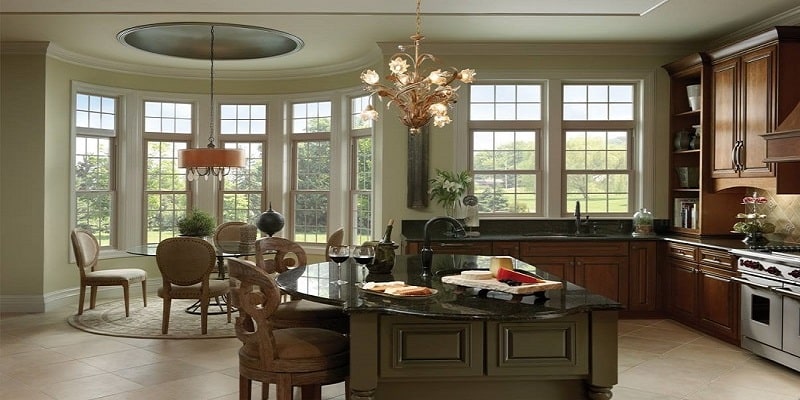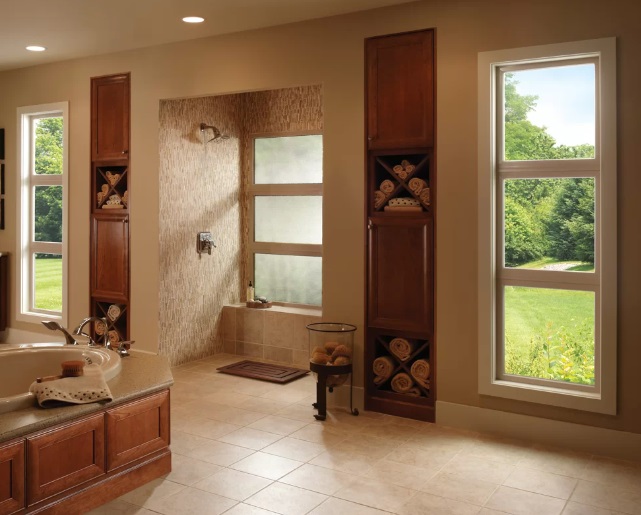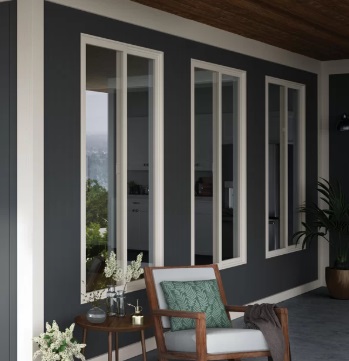- Free In-Home Estimate
- 1-949-284-7483
- info@californiawindowandsolar.com
Is Aluminum Windows Are Energy-Efficient?

Fiberglass Windows Is It the Best Choice?
February 12, 2024
Save Money on Energy Bills Through Replacement Window
February 26, 2024In window shopping, aluminum windows stand out for their strength, sleek design, and affordability. However, homeowners and builders often wonder if they make the cut when it comes to energy efficiency. This article delves into the energy efficiency aspect of aluminum windows and how advancements have addressed their inherent challenges with replacement windows in Laguna Niguel, CA.
Understanding Aluminum’s Thermal Conductivity
Aluminum is known for its high thermal conductivity, which readily transfers heat. Initially, this property raised concerns about aluminum windows’ performance in maintaining a home’s internal temperatures by potentially allowing more heat loss in winter and heat gain in summer than other materials.
Technological Advancements: The Game Changer
Recognizing the need for more energy-efficient solutions, manufacturers have innovated extensively with aluminum windows. Breakthroughs such as thermal breaks, improved glazing options, and better sealing techniques have significantly enhanced their energy efficiency.
Thermal Breaks
A pivotal improvement in aluminum window technology is the introduction of thermal breaks. These are insulative materials placed within the frame to interrupt or break the conductive path of heat. The windows can drastically reduce heat transfer by inserting these barriers, making them far more energy-efficient than their predecessors.
Enhanced Glazing Options
Aluminum windows now come with various glazing options designed to improve energy efficiency. Double or triple-glazed panes filled with inert gas and low-emissivity (Low-E) coatings can reflect infrared light, keeping homes warmer in the winter and cooler in the summer. These advancements have made aluminum windows competitive with other materials in terms of insulation and energy savings.
Improved Sealing Techniques
Air leakage around windows can undermine energy efficiency. Modern aluminum windows feature advanced sealing techniques that minimize drafts and air leakage. Combined with the material’s inherent durability and resistance to warping, these seals ensure long-lasting tightness and performance.
Weighing the Benefits Against Other Materials
While wood and vinyl windows are often praised for their natural insulating properties, aluminum windows, with their recent technological enhancements, offer a compelling package of durability, low maintenance, and now, improved energy efficiency. They’re particularly suited for contemporary architectural styles where large, slim-framed windows are desired to maximize views without compromising energy performance.
Environmental Impact and Sustainability
Beyond immediate energy savings, choosing aluminum has broader environmental implications. Aluminum is recyclable with a relatively low ecological footprint during recycling, presenting an appealing option for eco-conscious homeowners. Also, aluminum’s longevity and low maintenance requirements contribute positively by reducing the demand for resources over time.
Making the Right Choice for Your Home
 In determining if aluminum windows are the right choice for energy efficiency in your home, consider factors like your climate, the architectural style of your building, and specific product ratings. Advances in technology mean today’s aluminum windows are vastly superior in energy performance compared to older models, but individual needs vary.
In determining if aluminum windows are the right choice for energy efficiency in your home, consider factors like your climate, the architectural style of your building, and specific product ratings. Advances in technology mean today’s aluminum windows are vastly superior in energy performance compared to older models, but individual needs vary.
An informed decision involves comparing window options based on their Energy Star ratings and U-values. These indicators clearly show how well a window can retain interior temperatures and contribute to overall energy savings.
In summary, modern aluminum windows offer a robust solution for those seeking durability, style, and energy efficiency in replacement windows in Laguna Niguel, CA. With technological improvements addressing their conductivity challenges, they’ve become a viable option for homeowners looking to balance aesthetics with environmental consciousness and utility savings. Call us now at California Window & Solar.




